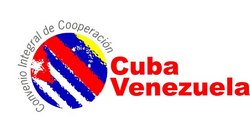Cuba and Venezuela Foster Bilateral Economic Integration
- Submitted by: admin
- Caribbean
- history
- international
- South America
- Business and Economy
- Science and Technology
- Politics and Government
- 10 / 25 / 2008

The first four sugar mills currently under construction in Venezuela with Cuban technical cooperation, which will produce ethanol and other sugar cane derivatives, will start operations in late 2010, announced Egly Antonio Ramirez, president of the agricultural subsidiary of Venezuela’s state oil company PDVSA as cited by Cuba’s Opciones business magazine.
The initiative pursues the setting up of another seven sugar cane processing plants, with Cuban technology, to produce mainly alcohol that will be mixed with gasoline. It is not only a matter of producing fuel, said Ramirez, but a component that will enrich gasoline between 7 and 10 percent, thus replacing other additives that are harmful to the environment.
At present, the works are still in early stages, though when the sugar plants display they full production capacity they are expected to process 10, 600 tons of sugar cane each every day.
Addressing experts from 21 countries at the recent congress, the Venezuelan official offered details and images on the project, which is underway in the states of Barinas, Portuguesa, Cojedes and Trujillo, where the first equipment for the plants have already arrived from Cuba.
The Venezuelan Official described as valuable and crucial the Cuban experience in the production of the sugar derivatives, which also includes the output of animal feed, so important for the Venezuelan projects to reach food sovereignty.
Antonio Ramirez recalled that Cuba and Venezuela signed a bilateral accord to jointly boost a series of projects supported by scientific and technical research institutions, such as the Cuban Institute for Research on Sugar Cane Derivatives (ICIDCA).
The bilateral cooperation program is mainly aimed at strengthening food production; therefore, “we think that the sugar cane industry, which has a large potential as a diverse food source, may yield a large amount of products in the benefit of our two nations,” said the Venezuelan official.
“The unity of both countries, under the umbrella of the ALBA and the Cuba-Venezuela agreement, has allowed us to go ahead towards more complex and integral objectives in our bilateral relations,” he stressed and noted that the current experience in the field of sugar cane derivatives may become an economic integration initiative that could be joined by other sugar cane producing countries of Latin America and the Caribbean.
The Congress gathered some 400 experts, who discussed aspects relevant to the use of biotechnology and chemicals in the production of sugar cane derivatives and by-products.
During a brief meeting with the press, Cuban Sugar Minister Ulises Rosales del Toro said that the Caribbean country looks forward to higher efficiency in the upcoming sugar cane harvest, which will include 61 sugar mills; he said the sector expects to increase its sugar yield.
The Congress was attended by the Executive Director of the International Sugar Organization Peter Baron, who lectured on the current world economic situation.
(acn)
Comments